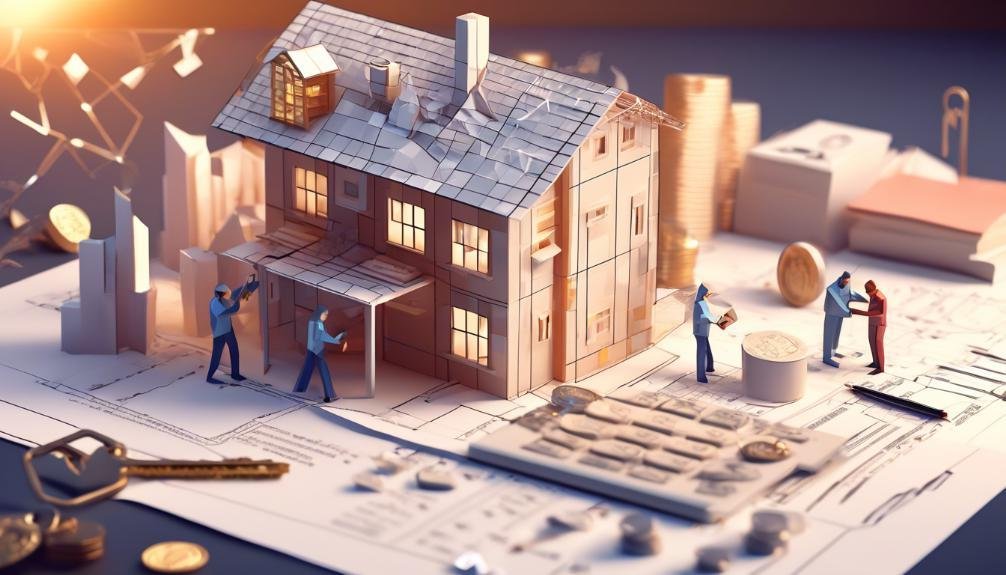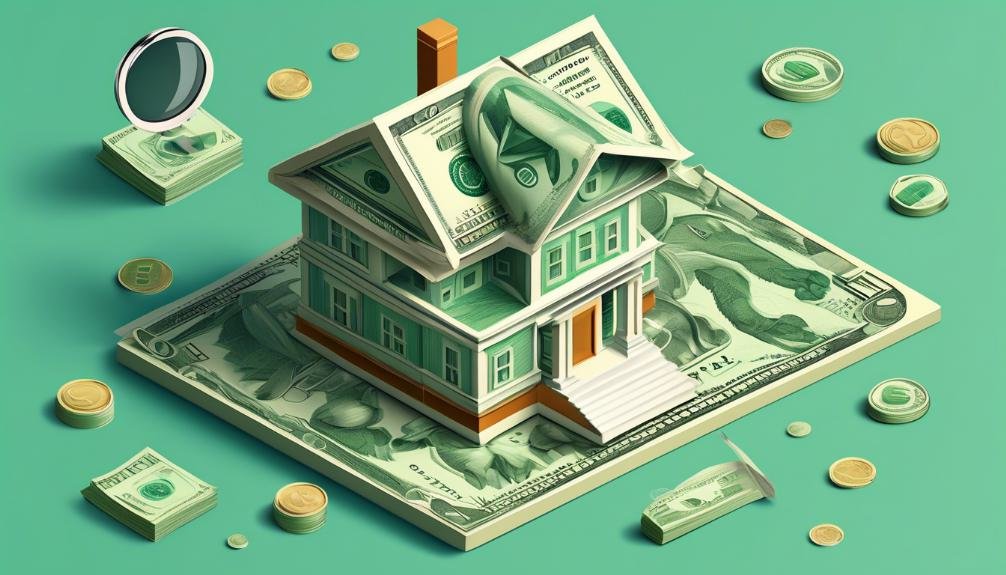Buying a home involves more than just paying the mortgage. There are other costs, often overlooked, that can surprise you as you get closer to owning a home. These include fees for processing your loan, checking the legal history of the property, and assessing the home's value. Knowing about these expenses is crucial because it helps you budget correctly and avoids last-minute shocks. Let's delve into what these fees are and why they matter.
For example, loan origination fees are what lenders charge for processing your mortgage application. A title search ensures the property you are buying doesn't have any legal issues like unpaid taxes or ownership disputes. An appraisal is an expert's assessment of the home's worth, which helps in securing a loan that matches the property's value.
Understanding these costs is key to a smooth home-buying experience. It's like being prepared for a test; you'll feel more confident and ready to take on what comes your way. So, keep an eye on these fees and include them in your budget early on. This way, when it's time to close the deal on your new home, you'll be ready, without any surprises hindering your move-in day.
Understanding Closing Costs

Closing costs are the various fees and expenses you pay when you're buying or selling a home. These are important for anyone in Chambersburg, Shippensburg, Waynesboro, or Greencastle to consider because they can affect how much money you'll need or receive. For example, if you're buying a home, expect to pay for things like the fee for creating your loan, property valuations, insurance for the property's title, and handling of the funds by a third party. If you're selling, you might have to pay taxes on transferring the property, legal fees, and the real estate agent's commission.
These costs are more than just extra charges on top of the home's price. They can be quite substantial. Buyers usually pay between 2% to 5% of the home's price in closing costs. Sellers need to consider these costs to understand how much money they'll actually get after selling their home. Knowing about these costs can help you talk terms and maybe even reduce what you owe or increase your profit.
For instance, in these Pennsylvania towns, a buyer purchasing a $200,000 home might need to budget an additional $4,000 to $10,000 for closing costs. As a seller, if you're aware of the costs, you can negotiate the sale price to ensure you cover them and still meet your financial goals. It's smart to talk to a local real estate agent or financial advisor who can give you a detailed breakdown and advice on how to handle these costs effectively.
Common Fees Explained
When you're buying a house, there are several important fees to know about. Title insurance is a one-time cost to make sure that nobody else can claim they own the house you're buying. It protects you and the bank that's giving you the mortgage. The fee for setting up your mortgage, called a loan origination fee, is usually 0.5% to 1% of the total loan amount.
You'll also pay for a home inspection, which is when someone checks the house to find any problems before you buy it. This step is essential because it can help you avoid costly surprises later on.
Then, there are prepaid escrow items. These aren't fees from the lender, but they're payments you make in advance for things like property taxes and home insurance. This is to make sure there's enough money set aside to pay these bills when they're due.
Lastly, there's an option to pay mortgage points. This means you pay the lender some money upfront to get a lower interest rate on your mortgage. If you're planning to live in your home for a long time, this could save you a lot of money.
Calculating Your Expenses
Understanding your closing costs is important because it affects how much money you need to bring to the table when you buy a house. In Chambersburg, what you pay at closing can change based on your loan size, where the house is, and the kind of loan you get.
To figure out what you'll owe, get an estimate from your lender after you apply for a mortgage. This quote will show what you need to pay the lender and other costs like the price for inspecting the house's value, checking who legally owns the property, and getting legal help. In Chambersburg, you also have to think about how much you owe for property taxes and home insurance, since you might have to pay some of these costs upfront at closing.
Make sure you also account for smaller charges like the cost to check your credit, the fee for processing your loan, and any fees for a homeowners' association if your new home has one. Go over these costs with your real estate agent or a lawyer to make sure they're right for the Chambersburg market. Some of these costs can be talked down, so ask your lender if there's any way to lower or get rid of some fees to make closing on your home more affordable.
Keep in mind that the clearer and more detailed you are when talking about your expenses, the less likely you are to face unexpected costs. So, take the time to understand each fee and why it's necessary, and don't hesitate to ask for advice or negotiate to keep your expenses down.
Negotiating With Sellers
Understanding your closing costs is key, and you can save money by talking with sellers about paying some of these costs. In Shippensburg's housing market, it's quite normal for buyers to ask sellers for help with closing costs, and many sellers are open to this to make the sale happen. Here's a clear plan to guide you through this discussion:
- Look at the Market: If more homes are for sale than there are buyers, you have an advantage. In this case, sellers might be more willing to chip in for fees to ensure they sell their home.
- Understand Your Costs: Ask your lender for a detailed list of closing costs. This will let you know exactly which costs you can ask the seller to pay in Shippensburg.
- Think About the Home's Price: If the home's price is already low, the seller might not be open to covering closing costs. But if there's space for negotiation, it doesn't hurt to ask.
- Be Prepared to Meet Halfway: You can offer something in return, like agreeing to a closing date that works best for the seller or increasing your offer price to make the deal more appealing.
Preparing for Settlement Day

As Settlement Day nears, it's vital to have all your paperwork ready and your money matters sorted for a smooth transaction. You'll need to show you have home insurance and share any reports on home inspections or completed repairs that you've agreed on with the seller. Before the big day, make sure your funds are with your closing agent and you fully understand the fees and charges from the Closing Disclosure form they gave you.
Check again when and where you need to meet for settlement, and who should be there. Usually, you'll be with the seller, the closing agent, and perhaps your real estate agent and lawyer. Often, lenders want a cashier's check or a bank transfer for what you owe, so double-check how you'll need to pay beforehand.
Also, grab any other papers you might need, like a photo ID or proof that you have the cash for your down payment and other costs. Go over all your documents before Settlement Day to prevent any last-minute issues. You're about to own a home, and being prepared is key to making everything go without a hitch.
Conclusion
Purchasing a home is a significant accomplishment, similar to finishing a long race. You've put in a lot of effort negotiating and managing the paperwork. It's important to know that as you get close to owning your home, you'll need to pay for closing costs, which typically range from 2% to 5% of the home's price. So, it's wise to plan for these expenses to avoid surprises. Think of these costs as the final steps in securing your new home. When you make these payments, you're not just spending money; you're investing in a place you can call your own. Welcome to your new home, where each dollar you've spent is an investment in your future.

